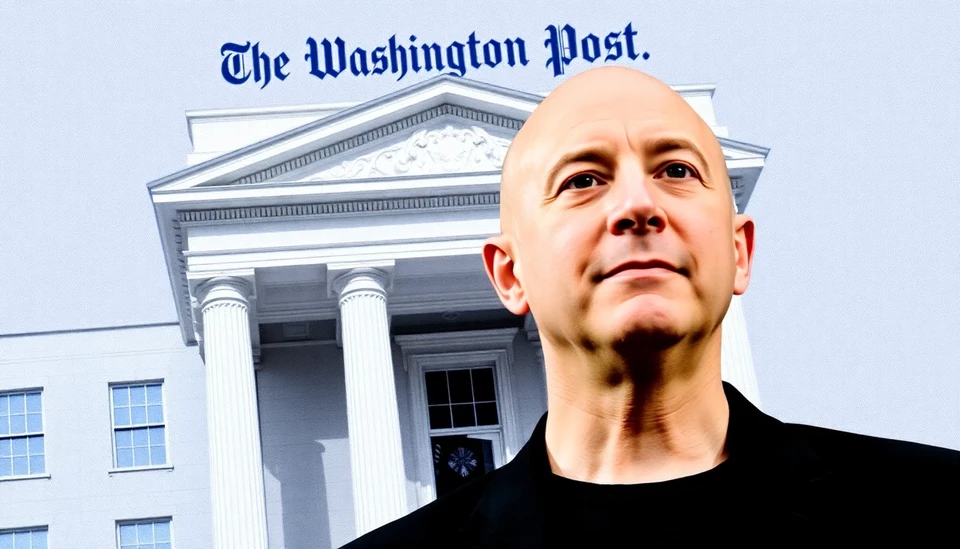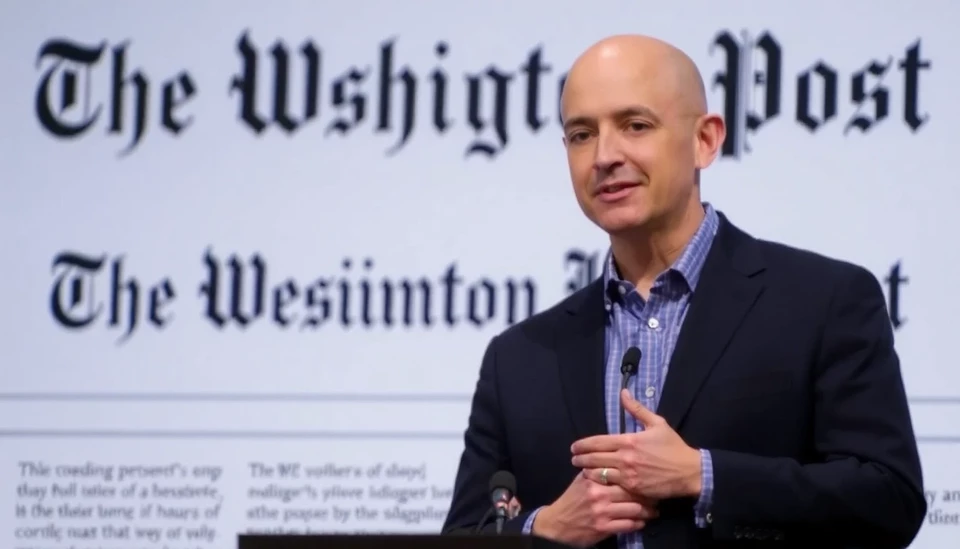
In a surprising turn of events, the editor of The Washington Post has announced their resignation shortly after a critical piece regarding Amazon founder Jeff Bezos was reportedly put on hold. This development has sent ripples through the journalism community, raising questions about editorial independence and corporate influence within media organizations.
The article in question, which scrutinized Bezos’s handling of various business and ethical issues, was said to have been deemed too provocative to publish by higher-ups at the publication. Sources close to the matter indicated that this decision was met with dismay by the editorial staff, highlighting ongoing tensions between journalistic integrity and corporate interests.
Specific concerns emerged when internal discussions revealed significant pushback against the article, prompting the editor's departure. Colleagues and industry observers have speculated that the incident reflects broader issues within the media landscape, particularly regarding ownership and the pressures exerted on editorial teams. The Washington Post, owned by Bezos, has faced scrutiny in the past for its editorial choices and the perceived conflicts of interest arising from its ownership structure.
Current and former staff members have voiced their support for the editor, emphasizing the importance of maintaining an independent editorial voice, especially in a climate where corporate influence looms large. The situation has ignited a fierce debate about the challenges journalists face in pursuing stories that may upset powerful figures, creating an uneasy relationship between media entities and their owners.
As the dust settles from this significant shake-up, the conversation on the intersection of media and corporate power continues to gain traction. The resignation has underscored the pivotal role of editorial leadership in upholding journalistic standards and fostering an environment where critical reporting can thrive, unhindered by external pressures.
Analysts speculate on the potential implications for The Washington Post moving forward. The editorial choices made by incoming leaders in the newsroom could shape the publication's trajectory and its commitment to covering stories that matter to its audience, regardless of who may be on the receiving end of criticism.
The media industry is closely monitoring the developments at The Washington Post as they may foreshadow a more significant trend, affecting not only relationships between media organizations and their owners but also the nature of journalism itself in a rapidly changing world.
As discussions around editorial autonomy and corporate influence continue to unfold, the journalistic community remains vigilant, advocating for the principles of accountability and transparency in reporting.
With the resignation of the editor, The Washington Post faces a critical juncture in its history, with the ability to navigate these challenges potentially marking its legacy in American journalism.
#WashingtonPost #JeffBezos #JournalismEthics #MediaIndependence #EditorResignation
Author: Victoria Adams
